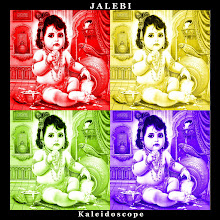Here is an extract taken from the book “Hinduism and Ecology” written by Ranchor Prime and published by Cassell and the WWF UK as part of their religion and education series. The entire text of this wonderful book can be found and read online! Just click on the title above and start to read and learn more about Mother Earth….and our relationship with her throughout the history of humankind!
The Cosmic Person
In the Vedic literatures mother Earth is personified as the goddess Bhumi, or Prithvi. She is the abundant mother who showers her mercy on her children. Her beauty and profusion is vividly portrayed in the beautiful Hymn to the Earth in the Atharva Veda, from which the following verses are taken:
”Your castles and fortresses are built by divine engineers. In every province of yours people are working hard. You bear all precious things in your womb. May God, the lord of life, make you pleasing on all sides.”. (43)
”O mother, bearing folk who speak different languages and follow different religions, treating them all as residents of the same house, please pour, like a cow who never fails, a thousand streams of treasure to enrich me.” (44)
”May you, our motherland, on whom grow wheat, rice and barley, on whom are born five races of mankind, be nourished by the cloud, and loved by the rain”. (42)
”O mother, with your oceans, rivers and other bodies of water, you give us land to grow grains, on which our survival depends. Please give us as much milk, fruits, water and cereals as we need to eat and drink”. (3)
Verses from Atharva Veda 12.1, paraphrased from the translations quoted by O. P. Dwivedi and B. N. Tiwari in Environmental Crisis and Hindu Religion, Gitanjali, New Delhi, 1987.
Earth's production of food is dependent on the principles of karma which lie at the root of the workings of the universe. All actions bring reactions, linking everything together in a seamless web. Hence the supply of food is influenced by the moral or spiritual behaviour of humanity. This may seem irrelevant in these scientific times, when we are able to control so much for ourselves, but it is nevertheless a fundamental principle of Hinduism. In Hindu tradition food is offered daily to God in the temple. Without these offerings the earth will not be satisfied and neither will we be. It is not that the earth is herself worshipped, but that she is satisfied when she sees that her own produce is being offered back to God, its original source.
It is often supposed that humans can get what they want from this world provided they are prepared to work hard enough for it. With their greater intelligence they can create wealth for themselves by exploiting the earth's resources, whereas animals are forced to follow their instincts and are only capable of struggling for survival. This ability of human beings to exploit their environment is supposed to mark them out as superior to animals. At any rate, this concept has been at the root of the expansion of human domination of the planet, particularly in the West, over the last five hundred years.
How different this concept is from that taught by the Vedas! According to the Isa Upanishad, this planet does not belong to humanity, any more than it belongs to the other species living on it:
”Everything in the universe belongs to the Lord. You should therefore only take what is really necessary for yourself, which is set aside for you. You should not take anything else, because you know to whom it belongs.”
So long as we treat the planet carefully and take only our share, acknowledging that it and everything else belongs to God, the planet will provide for our needs; but as soon as we try to take nature's gifts without offering anything in return we become no better than thieves.
To read the complete article “Chapter 5 The Cosmic Person” click here.
Back to Top

.jpg)



No comments:
Post a Comment